Table of Contents
Chances are you’ve heard some variation of this statement: SEO is necessary for every business. It’s one of the tactics that every brand should be using, no matter its industry or size. But why? And how does it work exactly? Today we cover that and more.
Why is SEO important? Because Google drives high-intent traffic.
SEO (which stands for “search engine optimization”) is important because it focuses on driving more traffic from search engines like Google, Bing, and Yahoo. More traffic to your website means more opportunities to turn visitors into customers.
Considering Google handles 1.2 trillion searches per year, boosting your visibility in search engines, even just a little, can mean a major boost in organic web traffic and brand awareness.
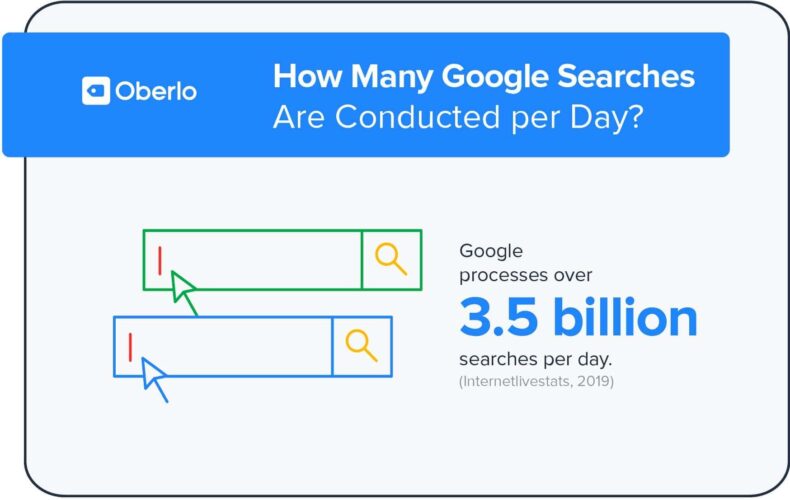
What’s more, this traffic has a special quality: Intent. People who use search engines like Google and Bing are intent on finding something: information, a product, entertainment, etc. If you can provide it, you put yourself in a position to earn a new customer.
How does SEO work?
Every second, 3.5 billion people go to Google looking for an answer. They type in their search query, hit enter, and are presented with a search engine results page (SERP). This SERP “ranks” pages in descending order based on their relevance to the search.
How does Google know what’s most relevant to the user? It finds (crawls) and processes (indexes) pages on the internet, and then uses over 200 ranking factors to determine whether it’s relevant to the user’s search. The company even goes so far as to use human evaluators to ensure their algorithm is effective.
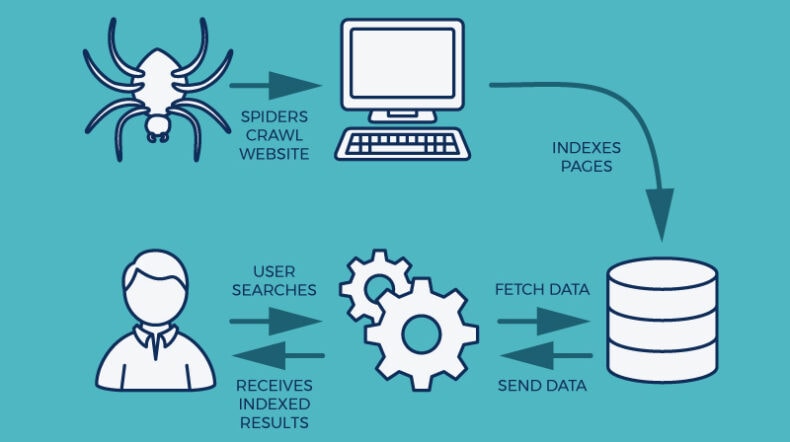
By optimizing your web pages with specific SEO techniques like link building, keyword research, and content marketing that satisfies the search intent of your target audience, you can improve your position on SERPs (known as improving your search engine rankings). The further up the SERP you move, the more likely your page is to be clicked.
When they click the link to your web page, searchers will be directed to your website, where you can offer them targeted content and products that will move through the buyer’s journey.
The importance of SEO compared to other digital marketing tactics
There are lots of different types of marketing strategies. What’s so important about SEO?
In short, its return compared to its investment is what makes search engine optimization so appealing. SEO is rated by businesses of all sizes as one of the most effective — if not the most effective — way to drive sustainable organic traffic.
For example, pay per click advertising (PPC) is another popular way to drive traffic from search engines. Google allows you to run PPC ads (pictured below) on search engine results pages as well, though they’re marked with an “Ad” indicator so searchers can tell the difference.
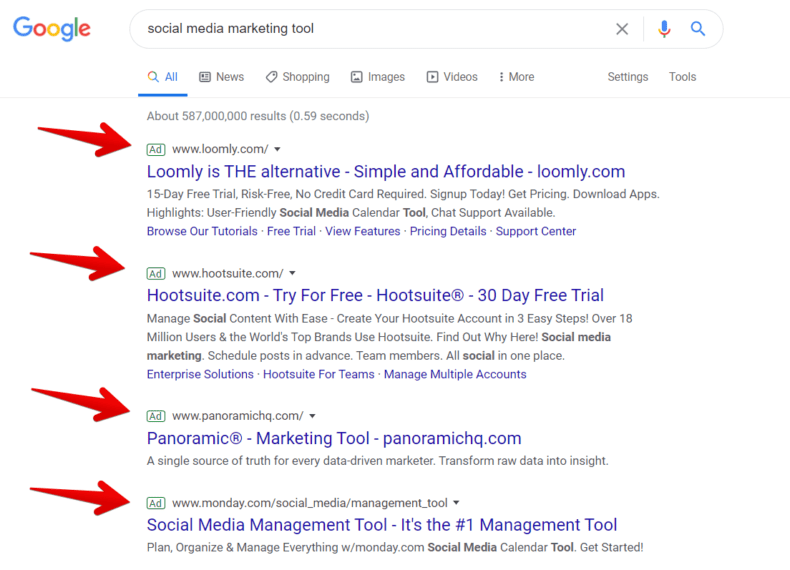
These ads are named for the way they work. Every time a user clicks one, the advertiser pays an amount determined by how much they, and other advertisers, are willing to spend on the traffic.
On the other hand, as an inbound tactic, SEO doesn’t require an advertising budget. Not only that, but most search engine optimization techniques can be completed by anyone after a brief introduction to SEO. Writing ads, creating landing pages, and bidding for PPC search traffic is more complex.
What’s more, SEO is a tactic that can pay dividends over time. The longer a web page is live on the web, and the more people who visit it and share it, the better it looks to Google’s search algorithm. This is not the case for other methods of traffic generation.
The basics of search engine optimization
Within the category of search engine optimization, there are lots of tactics you can use to boost your search rankings. These tactics are sorted into three types of SEO: on-page, off-page, and technical SEO.
On-page SEO
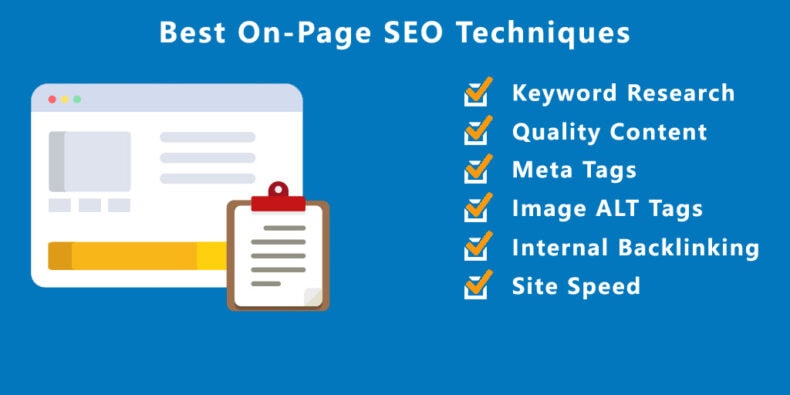
On-page SEO strategy is about improving things on your visible web page. This includes but is not limited to:
- Content marketing to create blog posts, videos, infographics, etc, that your customers want to find through search engines.
- Keyword research of short- and long-tail terms, which will reveal the words to use in your content to attract the right people.
- Meta tag optimization to ensure the content of your web pages is clear to users and search crawlers.
- Effective internal linking to make your pages easy for search engines to find, and to improve the user experience.
Off-page SEO
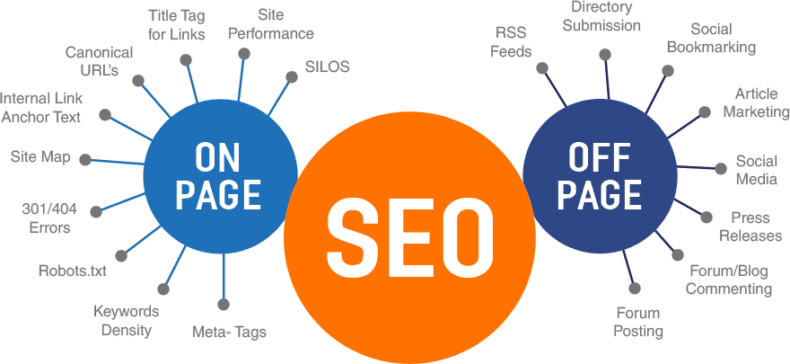
Off-page SEO revolves around generating links to your site, known as “backlinks,” from quality sources to improve Google’s perception of your business. When a different website links back to your website, it’s essentially vouching for you by telling its visitors “This web page has some information you should check out.” The more quality backlinks you have, the better your odds of improving your search engine rankings.
- Guest blogging to gain access to a new audience.
- Link building strategies to boost backlinks.
- Local SEO tactics like improving your Google business page to attract people who shop at local businesses.
- Social media marketing to amplify content.
- High-quality content marketing. When content is valuable and high-quality, people share it, which can result in backlinks.
- Influencer marketing, like guest blogging, can give you access to another audience with the potential to amplify your content and generate backlinks.
Technical SEO
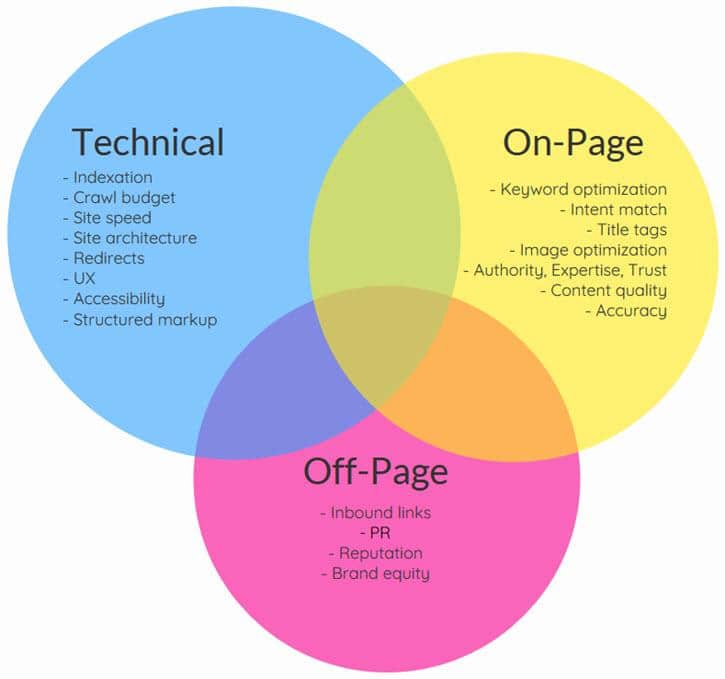
Some SEO best practices are harder for the average person to follow. That’s the case with technical SEO factors. This involves robots.txt files, XML sitemaps, page speed, mobile performance, and more. For most business owners, it’s a good idea to outsource these to an SEO expert, or at least an agency that offers technical SEO services. Here are some of the strategies that technical SEO encompasses:
- Using robots.txt files to direct Google search crawlers.
- Improving page speed with AMP, or by eliminating JavaScript and excess page weight, etc.
- Using XML sitemaps to tell crawlers where to find your web pages.
- Using schema markup to improve crawling efficiency.
- Creating a simple and keyword optimized URL.
- Designing your web pages for mobile-first indexing.
- Using the canonical tag to point Google away from duplicate content.
The Benefits of SEO
Search engine optimization comes with many benefits. Here are a few of the biggest:
- More website traffic
- Higher brand awareness
- Increasing ROI over time
- Lower maintenance than other methods like PPC
- Does not require a dedicated advertising budget.
- Does not demand a major investment from most businesses.
- Is not difficult to learn or execute (for the most part)
- More conversion opportunities to earn potential customers
Get an instant SEO audit
What’s keeping your web pages from generating more organic search traffic? Find out in seconds with a free SEO audit below. Or, schedule a free consultation to see how intent SEO can boost traffic value by 700%.
